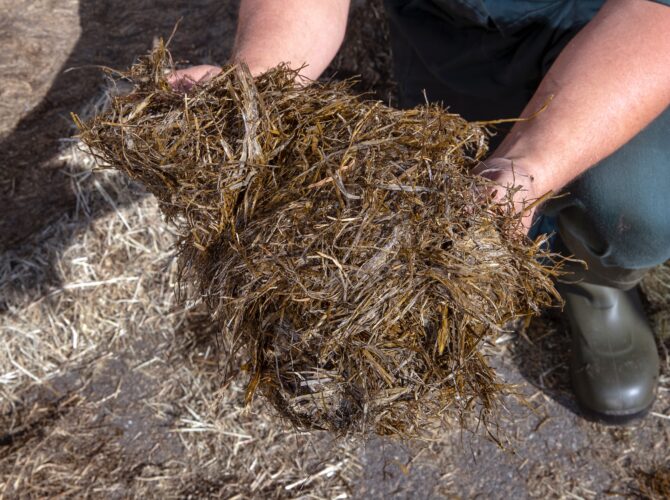Silage Success Starts with Science: The Role of Inoculants
18th April 2025

Using a silage inoculant for grass silage is key to enhance fermentation efficiency, preserve feed quality, and minimise nutrient losses. Grass silage often presents challenges during ensiling due to its protein levels, and potential soil contamination, all of which can hinder proper fermentation. Inoculants containing bacteria to help drive rapid pH reduction and inhibit spoilage organisms such as clostridia that degrade protein and reduce palatability. This process not only preserves more nutrients but also improves digestibility and stability, resulting in higher-quality silage that supports better animal performance.
Fane Valley stock high quality forage inoculants specifically designed to meet the challenging conditions in Northern Ireland. The Magniva and Axphast silage inoculants are backed up by scientific research which not only show the benefits of improved fermentation but also an increase in animal performance.
Axphast is specifically formulated to overcome the challenging conditions of low dry matter silages combining unique bacterial strains with patented enzymes to help fuel the fermentation. The specialist lactic acid producing bacteria (L.Plantarum and P. Pentosacues) in Axphast work together to deliver the rapid pH drop required. The rapid acidification of the crop inhibits undesirable bacteria and prevents losses due to secondary fermentation. By making more sugars available to the bacteria, the highly specific enzymes in Axphast speed up fermentation further. Trials have found that the lactic acid concentration was twice as high after 5 days compared to competitor products.
If the pH does not drop low enough undesirable bacteria such as clostridia and enterobacteria will not be destroyed causing dry matter losses and potential health issues. The addition of L. Buchneri bacteria in Axphast further reduce levels of clostridia compared to inoculants containing only homofermentative bacteria. The additional benefit of L. Buchneri in Axphast increases stability at feed out and keeping the product effective from 25-35% dry matter silages.
Improving how effectively the fibre in grass is broken down can has benefits for fermentation and for how well animals utilise the silage – and this is where the unique enzymes in Axphast come to the fore. The fibre in grass is not readily digestible by rumen microbes because it is tightly bound in bundles. The enzymes in Axphast are proven to break these bundles apart with two big benefits, breaking down the fibres release sugars which are the fuel for the lactic acid producing bacteria. More fuel means the bacteria can more rapidly deliver the rapid fall in pH needed, once broken down, there is a greater surface area available for attachment by rumen microbes leading to better forage digestibility. Independent trials conducted in AFBI found an increase of 19% in fibre digestibility, the study found that this increase in digestibility led to an increase in animal performance with a 4.7% increase in milk yield resulting in higher profits.
Magniva Platinum Dry is specifically designed to meet the challenges of higher dry matter silages. They specific challenges of these silages are aerobic stability at feed out. This inoculant contains a homofermentative strain P. Pentosaceus to produce lactic acid alongside heterofermentative strainsL. Hilgardii and L. Buchneri. These heterofermentative strains aid in fermentation but have the added benefit of preventing the growth of yeast and moulds.
Recent research conducted by the University of Reading on Magniva platinum found a multitude of benefits to using the inoculant. The trial found a 29% reduction on dry matter losses and 10x less butyric acid compared to untreated silage.
The silos were fitted with temperature recorders and found that the untreated silage reached temperatures of 34.6C during fermentation where the treated silage only reached 26.7C, this is significant in terms of energy loss. The equivalent of 28MJ of energy is lost per tonne of silage resulting in up to 5.4kg of milk lost. Alongside the benefits in fermentation there was also increased intake of the treated silage of 1.5kg/day resulting in an increase of fat-corrected milk yield of 1.9kg/day.
Find out more about silage making or silage inoculants by contacting your local Fane Valley Agronomist or call 028 9261 0485.

